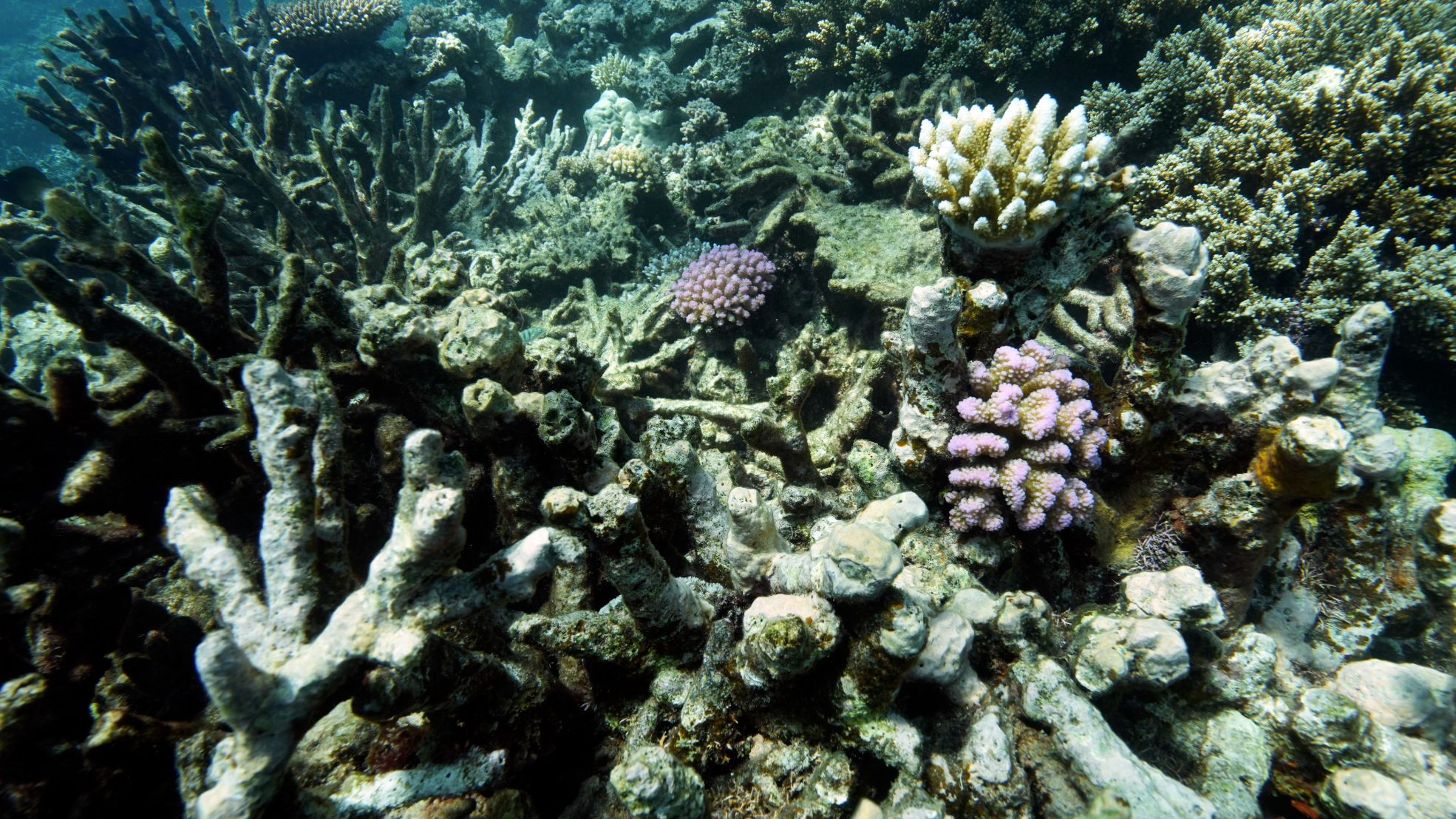
SYDNEY - Coral reefs off the coast of Western Australia (WA) suffered their worst-ever bleaching on record after an unprecedented 2024-25 summer marine heatwave, the Australian Institute of Marine Science (AIMS) said on Tuesday.
The heatwave was the longest, largest, and most intense on record for WA, with coral bleaching and mortality ranging from medium to extreme levels across reefs up to 1,500 km apart, according to scientists from the WA Coral Bleaching Group, which is convened by AIMS.
Their research found the heat stress peaked twice -- in December 2024/January 2025 and again in March/April 2025, with ocean temperatures only beginning to recede in May.
Early estimates show all reefs exceeded 15 Degree Heating Weeks (DHW), a measure of heat stress on corals, with some Pilbara reefs in WA reaching 30, far above the eight DHWs considered severe enough to cause coral mortality, said AIMS senior research scientist James Gilmour.
The intensity of the event had been relentless, with the marine heatwave impacting reefs that had previously escaped bleaching, he said.
"There has been little reprieve this time for any of our northwest reefs. Areas which had given us hope because they'd rarely or not been bleached before, like the Rowley Shoals, north Kimberley and Ningaloo, have been hit hard this time," Gilmour said. "Finally, climate heating has caught up with these reefs."
AIMS field surveys revealed coral mortality rates as high as 90 percent in some areas, with bleaching reported from the sheltered lagoon to the 30 meter deep outer reef slope.
ALSO READ: China rescues fire-stricken foreign container ship in South China Sea
Claire Spillman from the Bureau of Meteorology said that 2024 was the warmest year on record for global oceans, and sea surface temperatures in Australian waters during the summer of 2024-2025 were the warmest since official records began in 1900.
"The northwest waters of WA also experienced a warm winter in 2024, with persistent warm water at depth, and this background warmth increased the chances of marine heatwave conditions," she said.
Scientists link the increased frequency of extreme and record-breaking ocean temperatures to global warming, warning that reefs need 10 to 15 years to recover fully from bleaching.
Gilmour said the huge WA bleaching event coincided with another mass bleaching event on the Great Barrier Reef off Australia's northeastern coast, and is part of the ongoing fourth Global Coral Bleaching Event, which began in 2023.
He said the key to helping coral reefs survive under climate change was to reduce greenhouse gas emissions, improve local issues such as water quality and overfishing, and apply interventions developed by marine science.


